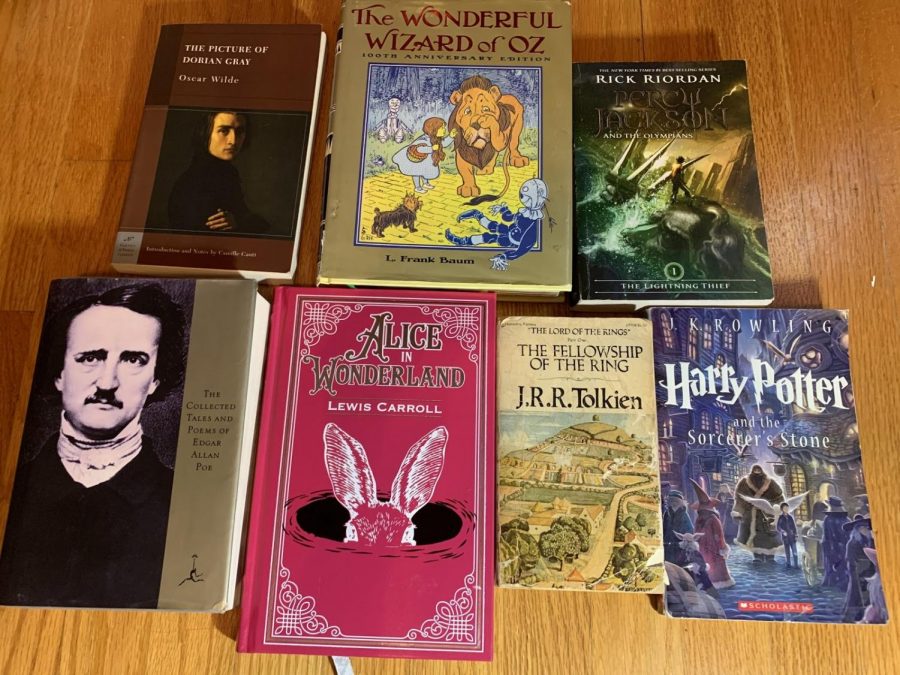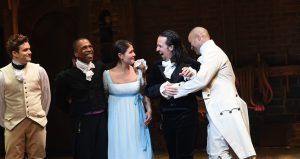The Evolution of Fantasy
Top Right to Bottom Left: The Picture of Dorian Gray; The Wizard of Oz; The Lightning Thief; The Collected Tales and Poems of Edgar Allan Poe; Alice in Wonderland; The Fellowship of the Ring; The Sorcerer’s Stone
February 5, 2021
Fantasy is one of the most dramatically varied genres of fiction. Almost any other genre has remained fundamentally the same, whether it was written two years ago or two hundred, but what is considered fantasy today would be almost unrecognizable to people just a few decades or centuries ago.
The first true “era” of fantasy books came about in the mid to late 1800’s, or more specifically, with the rise in popularity of the Romantic and Gothic writing philosophies. Think of books like The Picture of Dorian Gray or just about anything by Edgar Allan Poe. These stories contain unexplained elements within an otherwise “normal” world, usually to make it creepy and unsettling. This revelation that books don’t always have to follow the laws of our universe was the first step toward what we know today as fantasy.
The next phase of fantasy leaned a bit more heavily into the idea of another mystical world, but was still hesitant to consider it “real” within the universe of the book. This resulted in many novels ending with “it was all a dream”. This type of fantasy also usually was written for and about young children. The best examples are Alice in Wonderland and The Wizard of Oz.
By the time the 1950’s came around, fantasy had progressed enough to create the most iconic and recognizable fantasy series, The Lord Of the Rings. The genre had now embraced the idea of an entire universe separate from our own, probably the biggest turning point for fantasy. It paved the way for authors to write any crazy world they could imagine. This is also where many modern fantasy tropes originated: the chosen one, a dark lord, an ominous prophecy.
Modern fantasy novels are a diverse blend of the genre’s past. The Harry Potter and Percy Jackson series take place in the “real world” with a secret mythical community under the surface. Sir Terry Pratchett’s Discworld series, on the other hand, exists in just about the farthest thing from the real world conceivable.
Many fantasy tropes have become so popular that some books have leaned into how overdone they are and present them in a more satirical way. Fangirl and Carry On, by Rainbow Rowell, take Harry Potter and flip it on its head.
Fantasy is an incredible and constantly changing genre. Modern fantasy stories can be boring and predictable if done poorly, but when they’re done right, these books can be some of the most creative and interesting you’ll ever read.






